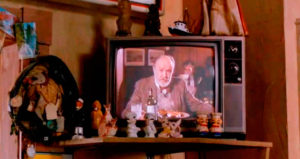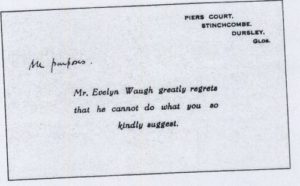Here’s my list of recommended Broadway, off-Broadway, and out-of-town shows, updated weekly. In all cases, I gave these shows favorable reviews (if sometimes qualifiedly so) in The Wall Street Journal when they opened. For more information, click on the title.
BROADWAY:
• Dear Evan Hansen (musical, PG-13, all shows sold out last week, reviewed here)
 • Groundhog Day (musical, G/PG-13, most shows sold out last week, reviewed here)
• Groundhog Day (musical, G/PG-13, most shows sold out last week, reviewed here)
• Hamilton (musical, PG-13, Broadway transfer of off-Broadway production, all shows sold out last week, reviewed here)
• On Your Feet! (jukebox musical, G, closes August 20, reviewed here)
• Present Laughter (comedy, PG-13, closes July 2, reviewed here)
• Six Degrees of Separation (serious comedy, PG-13/R, closes July 16, reviewed here)
• Sweat (drama, PG-13, Broadway transfer of off-Broadway production, original production reviewed here)
CLOSING NEXT WEEK OFF BROADWAY:
• Pacific Overtures (musical, PG-13, closes June 18, reviewed here)
CLOSING SUNDAY IN HARTFORD, CONN.:
• Heartbreak House (serious comedy, PG-13, reviewed here)


 • Michael Cannell, Incendiary: The Psychiatrist, The Mad Bomber, and the Invention of Criminal Profiling
• Michael Cannell, Incendiary: The Psychiatrist, The Mad Bomber, and the Invention of Criminal Profiling • Hilary Spurling, Matisse the Master: The Conquest of Colour, 1909-1954
• Hilary Spurling, Matisse the Master: The Conquest of Colour, 1909-1954

 I was amusing myself on Twitter before turning off the light and going to sleep last Friday night, and had occasion to post this deliberately curmudgeonly sentiment: “For the gazillionth time: ‘No problem’ is NOT the correct reply to ‘Thank you very much.’”
I was amusing myself on Twitter before turning off the light and going to sleep last Friday night, and had occasion to post this deliberately curmudgeonly sentiment: “For the gazillionth time: ‘No problem’ is NOT the correct reply to ‘Thank you very much.’” • Nobody cares old man. Pour yourself another prune juice and lighten the fuck up.
• Nobody cares old man. Pour yourself another prune juice and lighten the fuck up. Several respondents, presumably in the name of intersectionality, played the race card:
Several respondents, presumably in the name of intersectionality, played the race card: • Hi, Terry. Kindly go jump up your own ass and pull your linguistic prescriptivism up there after you. No problem!
• Hi, Terry. Kindly go jump up your own ass and pull your linguistic prescriptivism up there after you. No problem! Above all, though, I was struck by the furious resentment that came boiling into my Twitter feed as a result of my casual observation, as well as by the assumptions implicit in this resentment. It was, lest we forget, a one-sentence tweet devoid of context. Nevertheless, many respondents seem to have taken it for granted that I was portraying a real-life encounter between a haughty middle-aged man of means (i.e., me) and a poorly paid millennial convenience-store clerk (i.e., them). And while hundreds of people earnestly assured me, some pleasantly and others less so, that there is no definitional difference between “No problem” and “You’re welcome,” I soon lost count of the responses which made it crystal-clear that there is, at least for these particular respondents, a huge and purposeful difference.
Above all, though, I was struck by the furious resentment that came boiling into my Twitter feed as a result of my casual observation, as well as by the assumptions implicit in this resentment. It was, lest we forget, a one-sentence tweet devoid of context. Nevertheless, many respondents seem to have taken it for granted that I was portraying a real-life encounter between a haughty middle-aged man of means (i.e., me) and a poorly paid millennial convenience-store clerk (i.e., them). And while hundreds of people earnestly assured me, some pleasantly and others less so, that there is no definitional difference between “No problem” and “You’re welcome,” I soon lost count of the responses which made it crystal-clear that there is, at least for these particular respondents, a huge and purposeful difference. It happens that I know something about crappy jobs. When I was in my twenties, I spent several years working as a teller in an inner-city bank. It was, in fact, a perfectly decent job as jobs go, but I still hated it, in part because I feared that I’d hit a dead end that I might never be able to steer around.
It happens that I know something about crappy jobs. When I was in my twenties, I spent several years working as a teller in an inner-city bank. It was, in fact, a perfectly decent job as jobs go, but I still hated it, in part because I feared that I’d hit a dead end that I might never be able to steer around.